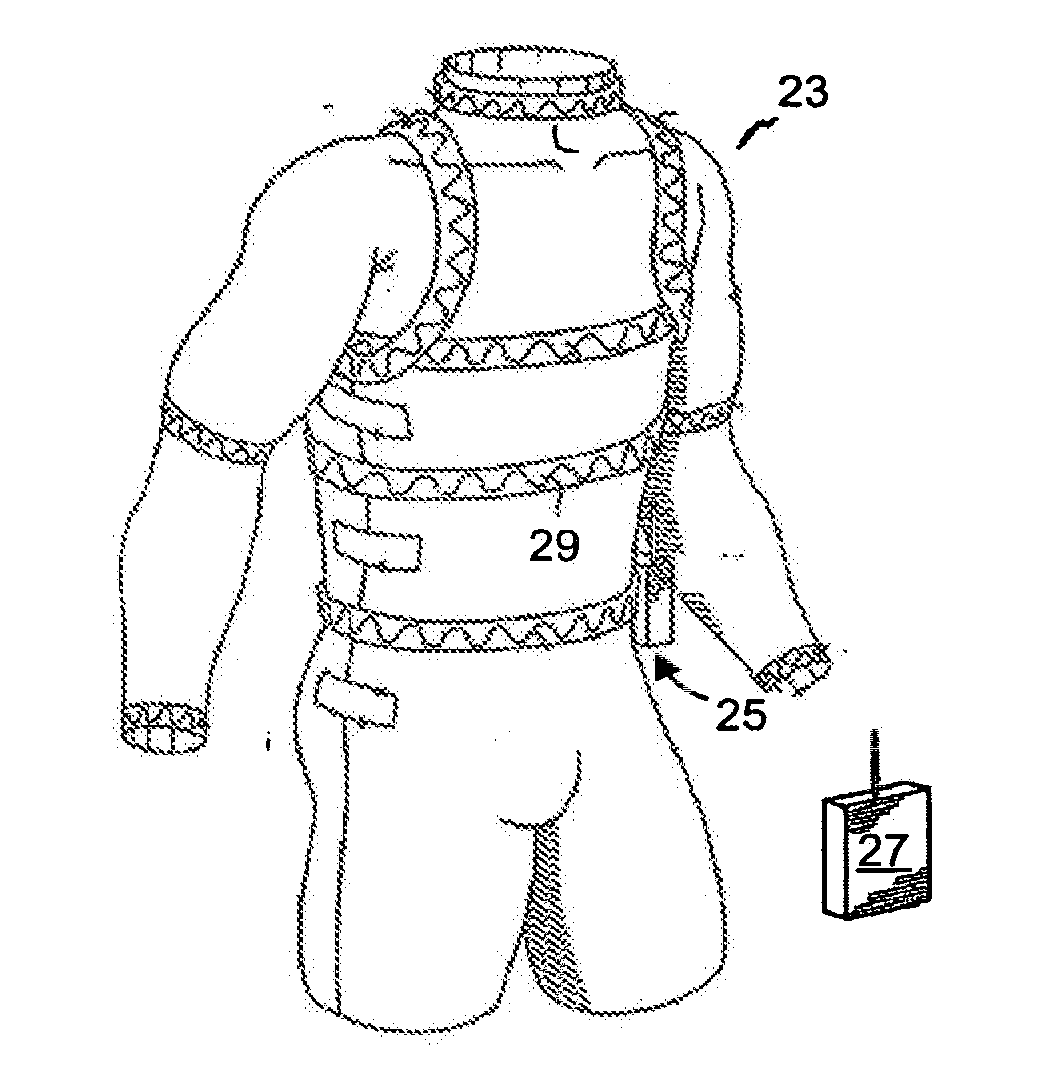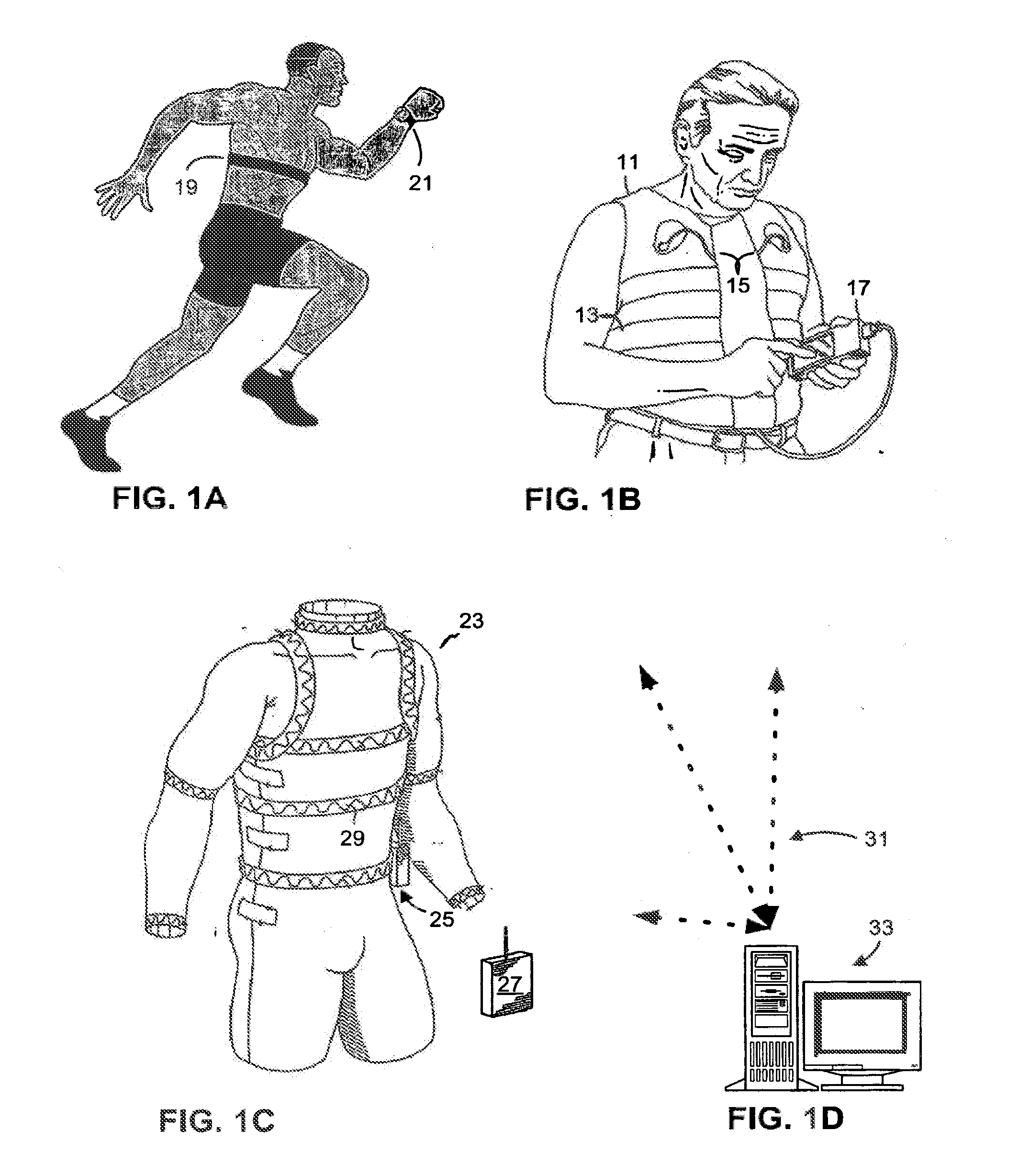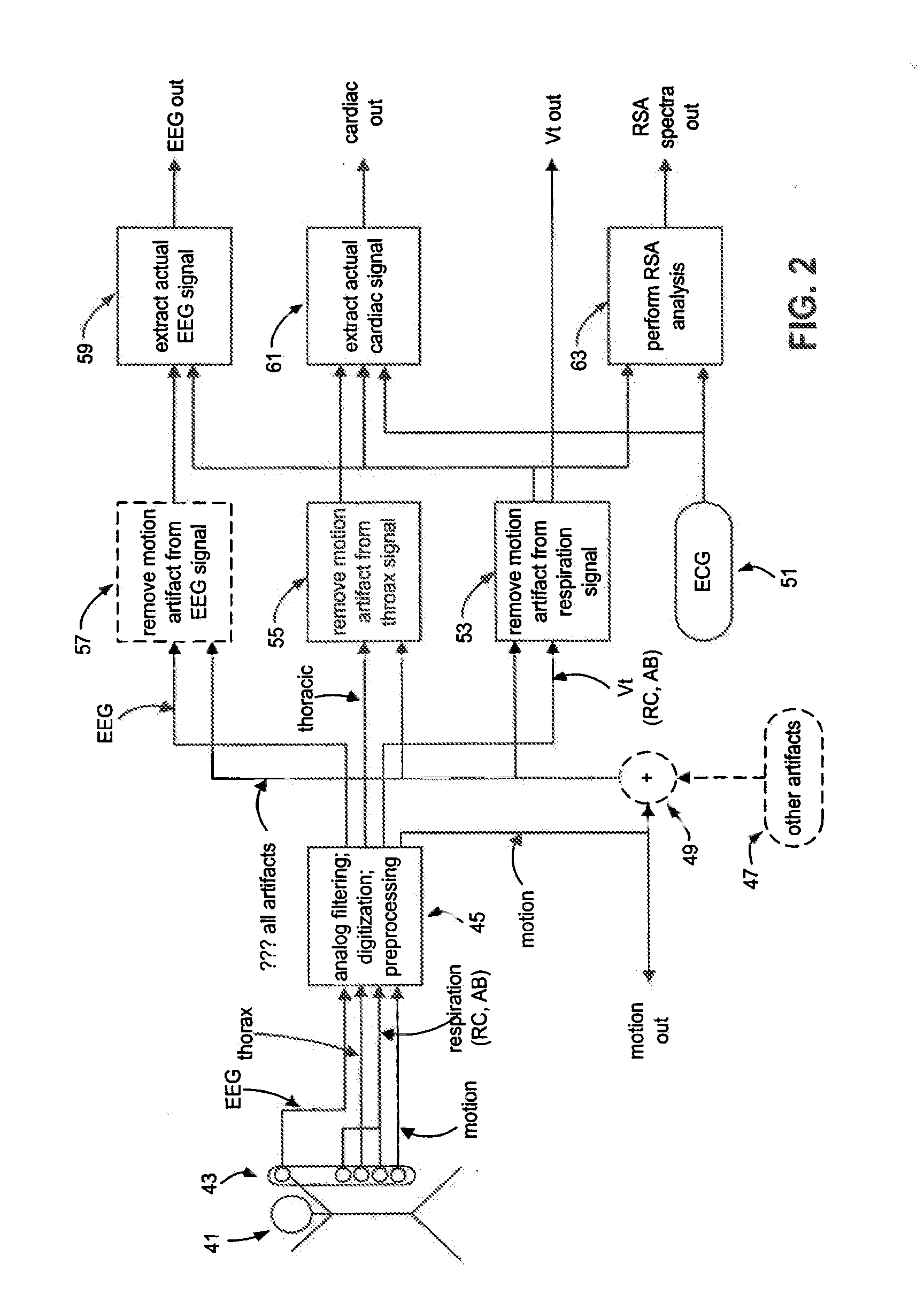Method and System for Processing Data from Ambulatory Physiological Monitoring
a physiological monitoring and processing method technology, applied in the field of processing signals obtained from non-invasive physiological monitoring, can solve the problems of preventing the use of technically optimal but often invasive sensors, ambulatory mpm signals often include significant artifacts and/or noise, and achieve the effect of improving robust and reliable extraction of physiological information
- Summary
- Abstract
- Description
- Claims
- Application Information
AI Technical Summary
Benefits of technology
Problems solved by technology
Method used
Image
Examples
Embodiment Construction
[0046]Preferred and / or illustrative embodiments of the present invention are described herein. However, the inventive principles of the present invention are not limited to these preferred and / or illustrative embodiments. These principles can be applied more broadly and / or adapted to future technological developments as will be apparent to one of ordinary skill in the art. The present should be understood to include such additional embodiments.
[0047]This section describes, first, preferred classes of ambulatory MPM signals input to this invention and illustrative systems for their capture, described next are preferred processing methods, beginning with a preferred integration of individual methods and followed by the individual methods and examples.
5.1 Preferred Signals
[0048]Preferred embodiments of the present invention monitor a subject' moment-by-moment cardiac and pulmonary functioning, activity level, and associated or other physiological systems or processes. Particular embodi...
PUM
 Login to View More
Login to View More Abstract
Description
Claims
Application Information
 Login to View More
Login to View More - R&D
- Intellectual Property
- Life Sciences
- Materials
- Tech Scout
- Unparalleled Data Quality
- Higher Quality Content
- 60% Fewer Hallucinations
Browse by: Latest US Patents, China's latest patents, Technical Efficacy Thesaurus, Application Domain, Technology Topic, Popular Technical Reports.
© 2025 PatSnap. All rights reserved.Legal|Privacy policy|Modern Slavery Act Transparency Statement|Sitemap|About US| Contact US: help@patsnap.com



